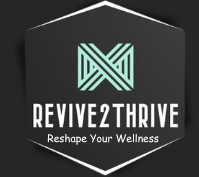Hey everyone! Today, I want to dive into a different side of guilt. Lately, I’ve been feeling guilty for not finishing tasks on time or for choosing to say “No” and relax instead of going out. That’s when it hit me—guilt often ties itself to wrongdoing, but it doesn’t always have to
Have you ever said sorry even though it wasn’t your fault? Or felt bad for saying “no” just to look after yourself? That’s guilt, and it can pop up even when we haven’t actually done something wrong ourselves
Guilt doesn’t always mean you did something bad. Sometimes, it comes from doing something good, being kind, or just trying to be the best version of yourself.
Guilt is a social emotion. It acts like an internal compass, guiding us to “do the right thing.” The problem? Sometimes this compass becomes overly sensitive. Even when there’s no real wrongdoing, your brain may fire off guilt signals just to be safe.
Let’s look at a few common moments:
- You turn down a friend’s invite because you’re exhausted — but then you feel guilty the whole evening.
- Take a day off from work after weeks of stress but can’t stop thinking, “Am I being lazy?”
- Putting off a task because you’re mentally drained, then feel guilty for procrastinating, even though rest is what you needed.
- You enjoy being home working on your goals but then feel guilty for not spending time with family or friends.
- You’re doing your best and slowly moving forward with your goals, but feel guilty for not making faster progress or for not being good enough.
None of these actions are wrong — yet the guilt still creeps in. Why does that happen?
Psychologists say guilt isn’t always about doing something bad. Sometimes it’s about how much we care, how we were raised, or how we judge ourselves. This kind of guilt is called “unnecessary” or “false guilt.”
Let’s explore in detail
Why Do We Feel “False Guilt” ?
1. Unrealistic Expectations and Perfectionism
Sometimes we place unrealistic pressure on ourselves to be perfect. When we fall short of our own high standards—often shaped by social comparison and fear of judgment—we may feel guilty, even if we’re genuinely doing our best.
We live in a culture that often glorifies hustle, speed, and constant productivity. If you’re working hard but not moving “fast enough,” you might start feeling like you’re failing
This disconnect between effort and perceived success can create a low-level guilt that simmers beneath the surface.
For example, if you’re working hard but not moving fast enough, you might think you’re failing, even though you’re making steady progress. It’s a harsh mental trap: You feel like you’re not doing enough even when you’re doing all you can.
2. Empathy and Caring Too Much
Highly empathetic people often absorb others’ emotions. If you’re sensitive to the feelings and needs of those around you, it’s easy to mistake their discomfort as something you caused—even if you didn’t.
This kind of emotional misattribution can leave you feeling falsely guilty when you’ve done nothing wrong.
For example, saying “No” to a friend, colleague, relatives or taking time for yourself might make you feel guilty because you’re worried about letting them down, even if it’s what you needed.
3. Upbringing and Learned Behaviour’s
Many times, we pick up guilt from the way we have been raised. If we grew up in an environment where guilt was often used to control or motivate us, we might carry that with us into adulthood. This can make us feel guilty even when we’re doing something perfectly fine.
For example, you might have been told you were “good” only when you did what others wanted and made to feel bad when you said “no” or tried to do things your own way. As an adult, this can translate into chronic guilt—especially in moments of rest, success, or independence.
4. Judging Ourselves Harshly
Some people are naturally more self-critical. They might constantly feel like they’re not doing enough, or that they’re falling short, even when they’re not.
This negative self-judgment leads to false guilt that isn’t based on reality, but on how harshly they view themselves.
5. Society and Cultural Pressures
Society often has expectations about how we should behave, what we should achieve, and how we should feel. When we fall short of these standards—like feeling guilty for saying “no” to additional work because you’re already occupied or feeling guilty for prioritizing your own goals over others’—we carry unnecessary guilt
6. Struggling With Internalized Beliefs
We all want to succeed, improve, and be our best selves. We also set goals for what we should achieve by certain ages. But sometimes, these beliefs can make us feel guilty if we think we’re “not doing enough” or “not moving fast enough,” even when we’re doing well. It’s like wanting to be perfect, but realizing that progress takes time.
These beliefs can make us feel guilty or afraid just for living our lives.
How to Cope with Unexplained Guilt
Pause and Assess:
Ask yourself, “Did I actually do something wrong, or am I just feeling responsible for things I can’t control?”
Reframe the Thought:
If the guilt isn’t based on facts, remind yourself that feelings aren’t always accurate. For example, if you feel guilty for not getting things done because you were feeling lazy or tired, instead of beating yourself up, try reframing it. Say, “It’s okay to take a short break. I’ll get back to the task in 30 minutes and do my best then.”
This allows you to acknowledge your need for a break without letting guilt control your actions.
Practice Self-Compassion, but Stay Honest:
Speak to yourself the way you would to a friend—with kindness and understanding. But be careful not to confuse self-compassion with avoidance. Sometimes we say things like “I’m just tired” or “I’m overwhelmed” and use that as a reason to put off important tasks or goals.
Instead of accepting those thoughts right away, pause and ask yourself, “Is this truly how I feel, or am I making an excuse?” Listen to that quiet inner voice—it often knows our real truth.
4. Talk to a Professional:



























